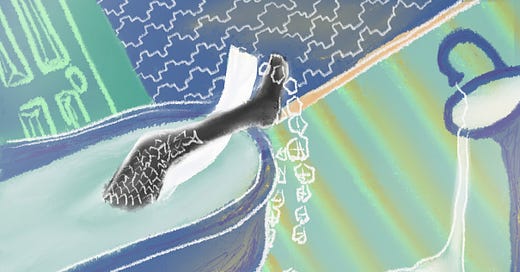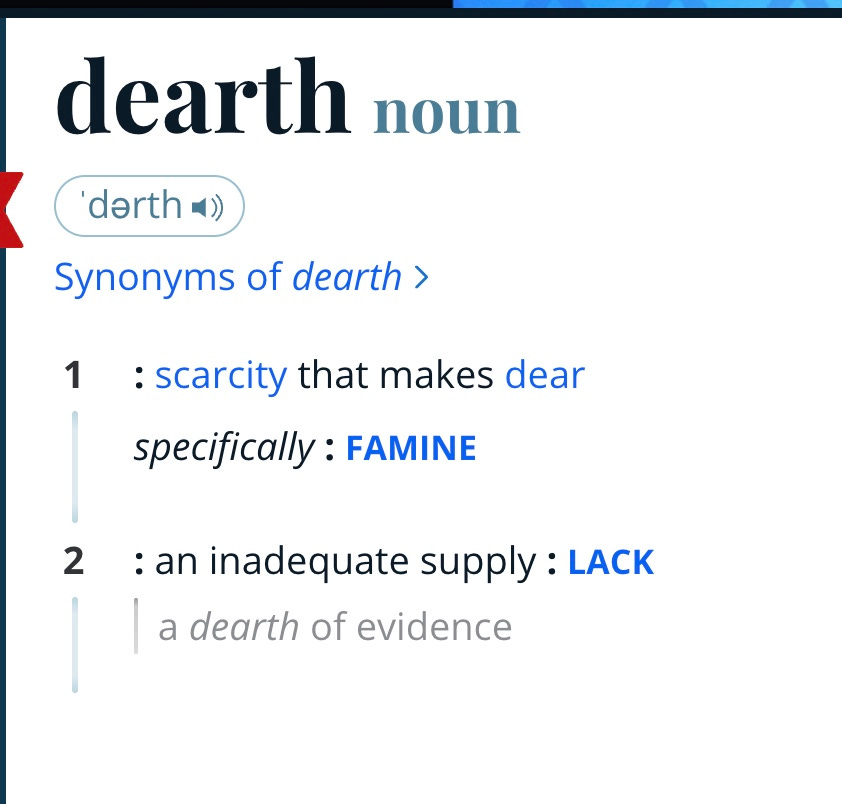The Desire-Pleasure Paradox
Join us today for Writing Toward Pleasure, a 6-week "pleasure adventure "on the page to enliven our writing and our lives with more of what's good
It’s so weird that I’ve elected to lead us—or, maybe not lead, but at least guide—us in this Writing Toward Pleasure adventure. It’s weird because I spent so much of my life afraid of pleasure.
Or, maybe, that’s not weird at all. Not weird that a recovering pleasure-a-phobe would only, after gradually discovering the enlivening power of pleasure, the joy of sensation, the buoyant, weightless sensation of feeling good, would grow more and more curious about pleasure over time, more and more devoted to and convinced by the urgent necessity of pleasure in our lives, and more and more aware of the wan, sad effect inflicted—over time—by a dearth of pleasure.
I like this word dearth a lot! A scarcity that makes dear?! Specifically, famine? What a perfect definition for the absence of pleasure, for unfulfilled pleasure-hunger.
I like this idea of of famine because when we are hungry and unfed, we grow numb to the hunger. In fact, one of the symptoms of starvation is a lack of interest in food.
Consider this: a symptom of the extreme and life threatening lack of food is a lack of interest in food.
This happens to us when it comes to pleasure, as well. When we are starved for pleasure, we lose interest in pleasure. We grow numb to the impact of pleasure’s absence. We become inured to it.
And this impact exists, of course, on a continuum. We might tell ourselves, but I do experience pleasure! And we’re probably right. We probably do not exist in a state of zero pleasure. However, we easily slip into a state of pleasure apathy, taking what scraps of pleasure come our way—maybe fully experiencing those pleasures, maybe not—but do too little to cultivate, nourish, and grow pleasure in our lives.
This latter—the cultivation, nourishment, and growth of pleasure, is where we begin in our Writing Toward Pleasure intensive.
What does it have to do with writing, though? Well, yesterday I referred to something writing coach Lisa Cooper Ellison said about pleasure on the page, about how essential a skill it is for us to learn to convey pleasure.
I have referred to this in my own editing, coaching, and teaching as a need to include light in darkness, a need to transform painful or traumatic lived experience into something beautiful for the page—not in a way that diminishes the pain or trauma, but, rather, amplifies it by creating a context of truth, which is always more complicated than we initially recognize. The truth of life, as we heard from Pema Chodron in Monday’s post, is gloriousness and wretchedness, and no matter how wretched the thing is, there is always some sliver of gloriousness, even if it is just hovering off to the left, not quite visible, slightly out of reach. It’s still there. And our job, I have said, is to find it and include it on the page, in order to make the story real.
To say that we must also portray pleasure is taking this principle a step further, and that is the step we’re taking now—the step we’re taking because we want to, even if, for some of us, it’s uncomfortable (and this question of why pleasure is so uncomfortable is one we could explore forever, and likely will).
Stepping toward—writing toward—pleasure because we want to leads me, unsurprisingly, to the concept of desire, and its role in pleasure. Because while pleasure does come to us on its own (whether we allow ourselves to experience it fully or not), we can also play a more active role in its cultivation, and that’s a switch we can flip as we enter into this work. One way to flip that switch is, I think, to allow ourselves to simply feel the power of desire in our lives, and see where that takes us.
Disclaimer: obviously, we can’t act on all of our desires without limit. This is the nature of human experience. We thrive when we take only some of what we want, and only in the appropriate circumstances. Even the delicious sensation of a cloud-soft bed against our bare skin on a sunlit morning can eventually become damaging, cause aches and pains and eventually bedsores.
So, obviously, we can’t act on all of our desires without limit. And maybe that’s one of the (many) reasons we too often fear desire—which is a topic of infinite interest to me. But for now, we can be satisfied simply to acknowledge that when we speak here of desire and pleasure, we know there are limits.
I have described since the outset of introducing this intensive that pleasure is grounded in sensation, which automatically ties it to embodied writing. To vividly portray pleasure on the page, we must attune to and attend to how pleasure feels in the body, which, in turn, requires that we attune and attend to sensation: the various ways in which we take in the world through our senses. The sights, sounds, textures, tastes, and smells that feel good.
This Book Riot essay on what makes writing sensual resonates with me:1
Maybe a sensual experience is when everything around you has a pulse that is as steady and real as the one you feel whenever you press a finger to your wrist. I suppose when you feel so connected to your environment that you absorb any and everything about it, that’s when sensuality occurs. It’s a form of intercourse that is a meaningful as when two bodies are pressed up against each other. But of course, this is writing and you still have to work at clearly describing whatever it is that you’d like to convey to the reader.
And that’s where we’ll take our efforts today—of finding that place where everything around us has a pulse that is as steady and real as the one you feel whenever you press a finger to your wrist. And we’ll begin our search for that place through the portal of desire.
Let’s begin by luxuriating in this iconic Kim Addonizio poem about desire—one from her 2000 volume, “Tell Me,” a finalist for the National Book Award. As Andrew Hidas writes, this poem by Addonizio shows her … “not only as a poet drunk with desire to take all of life into herself, no holds or emotions barred, but also with an assured sense of craft and emotional pitch that allows her to layer inexhaustible texture onto whatever she addresses.”
We’ll look at what she did, then see how it feels for us to “take all of life into ourselves,” or, at least, to allow ourselves the desire to do so, and to convey that on the page.








